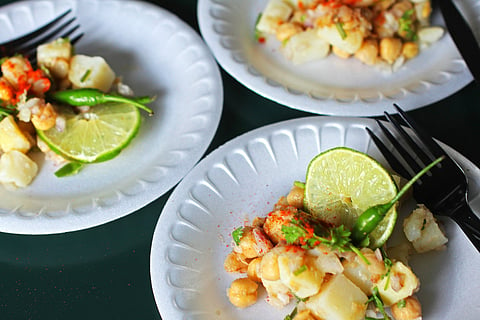Drought and heat resistant chickpea genes identified
HYDERABAD: Scientists from 21 research institutes led by the International Crops Research Institute for the Semi-Arid Tropics (ICRISAT) have identified genes from 429 variants of chickpeas for tolerance to drought and heat.
The variants of the crop were collected from 45 countries, equipped the team with key insights into the crop’s genetic diversity, domestication and agronomic traits. The study also mapped the origins of chickpea and its ascent in Asia and Africa.
The research claims that this means a potential development of newer varieties of chickpea with higher-yields that are not only disease and pest resistant, but will also able to withstand the variation in weather.
The study has also confirmed that chickpea came to India from Fertile Crescent/ Mediterranean via Afghanistan and may have been introduced back to the primary centres of origin after 200 years. The new study speculates about possible introduction of chickpea to the New World directly from Central Asia or East Africa rather than the Mediterranean.
“The genome-wide association studies identified several candidate genes for 13 agronomic traits. For example, we could identify genes which can help the crop tolerate temperatures up to 38oC and provide higher productivity,” says Dr Rajeev Varshney, the project leader and Research Program Director, Genetic Gains, ICRISAT.
Adding to this, Dr Xu Xun, CEO and president, BGI Research, China, co-leader of the project said, “BGI is very excited to work with CGIAR institutes like ICRISAT in high-end science research which could enable development of drought and heat-tolerant chickpea varieties for India and Africa.”

